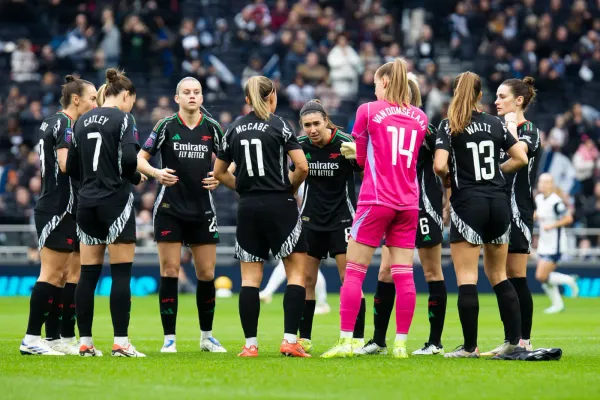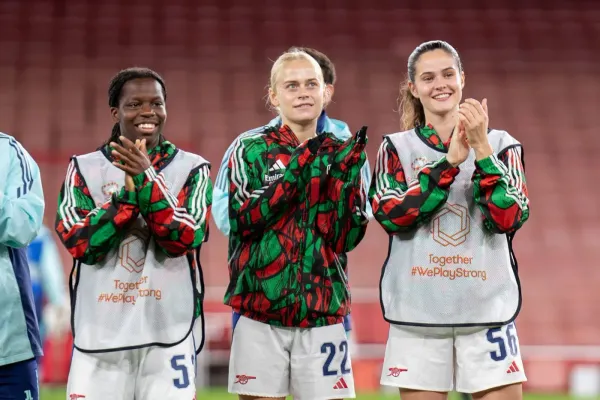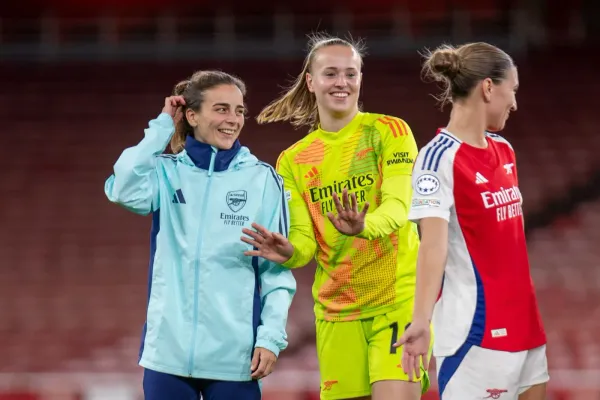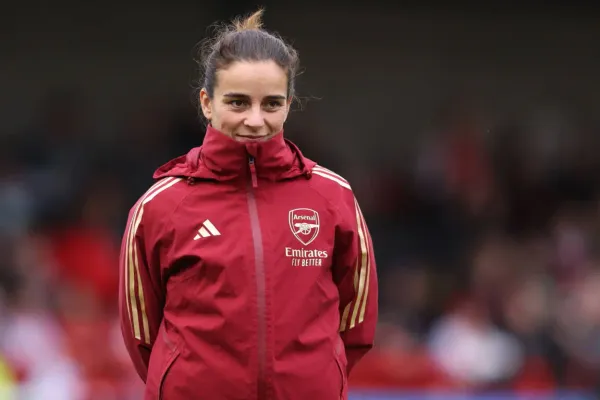An UnBeattieable legacy
WSL legends of a certain vintage don’t always get the flowers they deserve
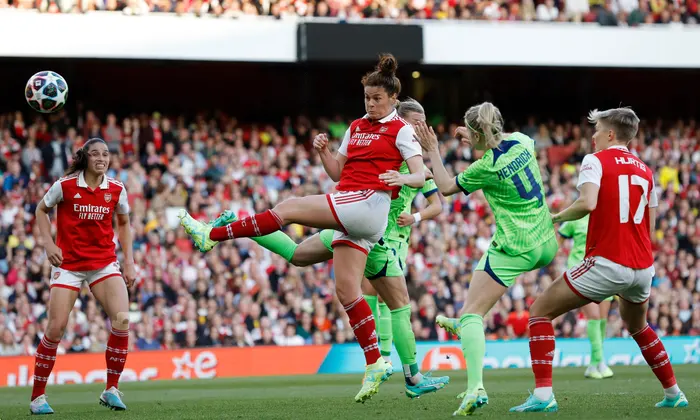
One of the curious things about the steep rise in viewership and interest in the WSL in the last two to three seasons is how the legacies of older players can be compromised on occasion. I think this probably happened in men’s football between the late 1980s and the birth of the Premier League in 1992.
The example I always look to, from an Arsenal perspective, is Alan Smith. Smith won the Golden Boot in title winning seasons for the Gunners in 1988-89 and 1990-91. He was the most prolific striker in the country during that period. However, that was before the birth of the Premier League and the more pervasive TV rights deal with Sky that underpinned it.
Smith’s successes as one of the greatest out and out goalscorers in Arsenal’s history was compromised by the fact that, not only did his best scoring form occur BPL (before Premier League) but his primacy as Arsenal’s best goal scorer was absorbed by the larger than life Ian Wright, just as the coverage of English football exploded.
Current WSL stalwarts in their 30s are experiencing something similar, where eyes are coming to the game in their relative dotages, with a lot of the audience only tangentially aware of their blistering early career form. I am thinking of someone like Jordan Nobbs, for example, who for many years was one of the best and most consistent players in the WSL prior to her ACL injury in November 2018.
But there were far fewer eyes on the game when she was in her prime. There are many similar examples throughout the league and what we are finding is that players from that generation require some kind of all pervasive swan song to assume the legacies their careers deserve.
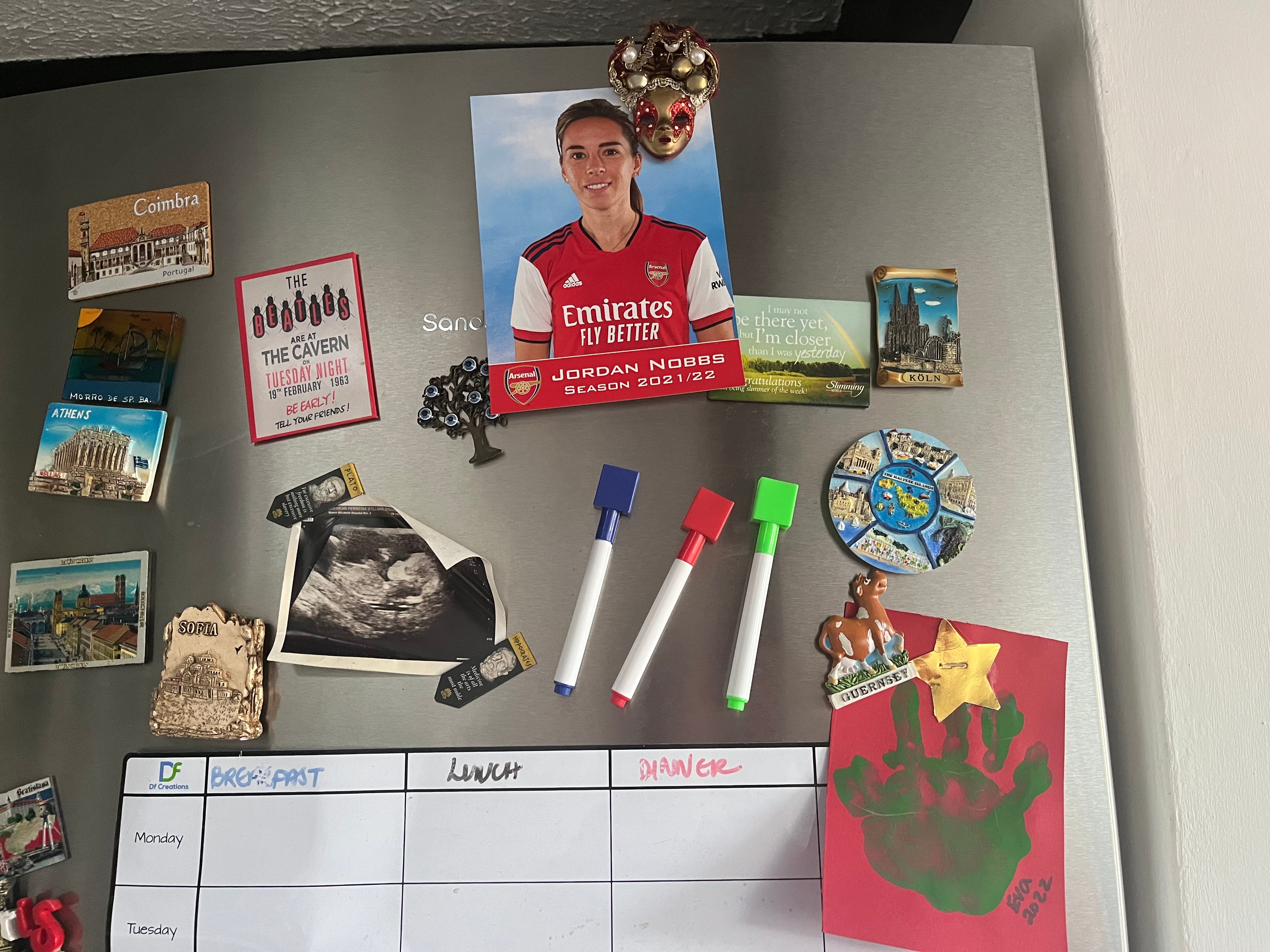
Ellen White and Jill Scott had the Euros win in 2022 so even if the entire spans of their careers are not as appreciated as they might otherwise be, their legends are secure within the parameters of that triumph. Players like Jordan Nobbs and Steph Houghton, for instance, missed that tournament and probably suffer in the collective memory as a result.
Alex’ Scott’s legacy, for example, lives on through her high profile media career. So even if her efforts as a right-back are probably not in their proper context, her presence is a consistent part of the WSL milieu. The same goes for other players who have indulged successful post playing media careers- Kaz Carney, Anita Asante and Gilly Flaherty’s skills as players might not be part of the cultural memory, their presence on our screens at least makes them familiar and serve as a reminder that they did have decorated playing careers, even if a lot of the audience didn’t witness it for themselves.
Which brings me onto Jen Beattie. Beats played for Arsenal as a teenager, before moving to France to play for Montpellier, then she returned to Manchester City, before returning again to Arsenal in 2019. I believe there isn’t even any footage of her 2012 hat trick against Barcelona in the Champions League and her two WSL titles at Arsenal were witnessed by only a handful.

Which is why Beattie’s goal against Wolfsburg last season is so important when it comes to placing her legacy in its proper context. A back problem and a bout of breast cancer meant Beattie played fewer games as a starter than intended when Joe Montemurro brought her back to the club in 2019. By 2022, she had become an important senior member of the squad but one who started games fitfully.
I think most supporters appreciated, even if in a second hand, cerebral way, why she was so highly valued by the coaching staff and her fellow players. Every team needs its leaders, however often they play. Chelsea have held onto Maren Mjelde for a long time for a reason, for example. Beattie’s late header against Wolfsburg at a sold out Emirates Stadium, followed by her unwitting bodying of Alex Popp, one of the most powerful players in women’s football, is a shared (in the cultural sense) and widely shared (in the viral digital sense) touchstone for Arsenal fans.
Jonas Eidevall spoke to Suzy Wrack recently about his feeling that Arsenal fans really forged a bond with the team last season because they identified with a squad ravaged by a succession of serious injuries fighting tooth and nail in every game to reach a Champions League semi-final.
Beattie’s header against Wolfsburg was the threshold of that shared sense of rooting for a team that wouldn’t say die. Arsenal were so short in attack that, when they needed a goal, they had to send Beattie, a very effective striker in her first spell at the club, upfront. Beattie laid waste to a succession of Wolfsburg bodies before connecting with Lotte Wubben-Moy’s cross and there is significance in that too.
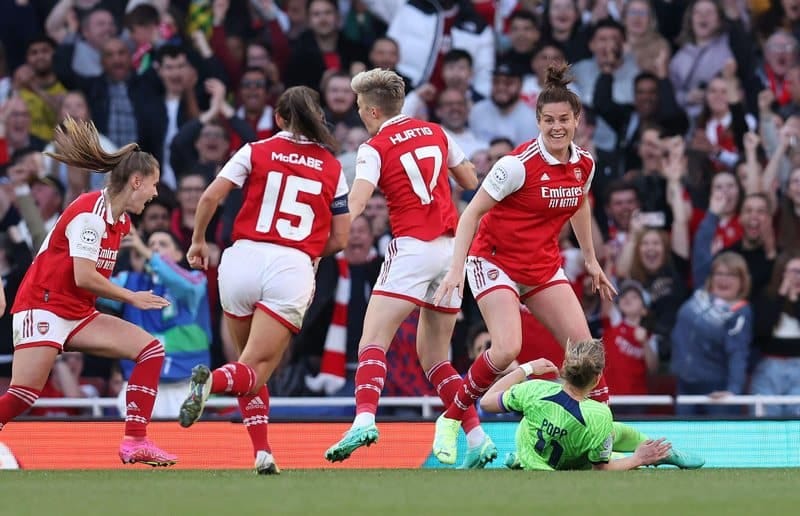
Wolfsburg are traditionally one of the most powerful teams on the continent but, one by one, their players bounced off Beattie before she plundered her header home. Arsenal enjoyed a similar moment a few weeks earlier when Katie McCabe left a game on crutches and in a protective boot on Wednesday but, just four days later, powered home a late winner against Manchester City. These moments existed within a feeling that Arsenal were stitching their own wounds, clambering to their feet and carrying on up the mountain.
Beattie’s goal had a faint sense of comedy and tragedy about it. Comedy that this incredibly basic tactic of putting a centre-half upfront actually worked against one of the best teams in Europe but tragedy because Arsenal were so bereft of personnel that they had to hit the ultimate panic button. The team was left to forage on the forest floor to make a passable weapon out of twigs and berries.
Even though Arsenal went on to lose the game in heartbreaking circumstances the iconography of the moment remained. And just as importantly, it enabled a club legend, whose biggest successes in red and white largely came at a time when only the Women’s FA Cup Final was televised, took the limelight for one of the most talked about moments in the club’s recent history.
Beattie scoring that goal in front of a sold out Emirates, with the game streamed live on DAZN on a Bank Holiday Monday, was an appointment television moment for a player who had spent much of her career amidst a media blackout. It is a shame that not every player of this vintage can secure their legacies with a similar scrapbook moment but it is, at least, very fitting that Jen Beattie got that moment and, with it, the flowers she deserves.

